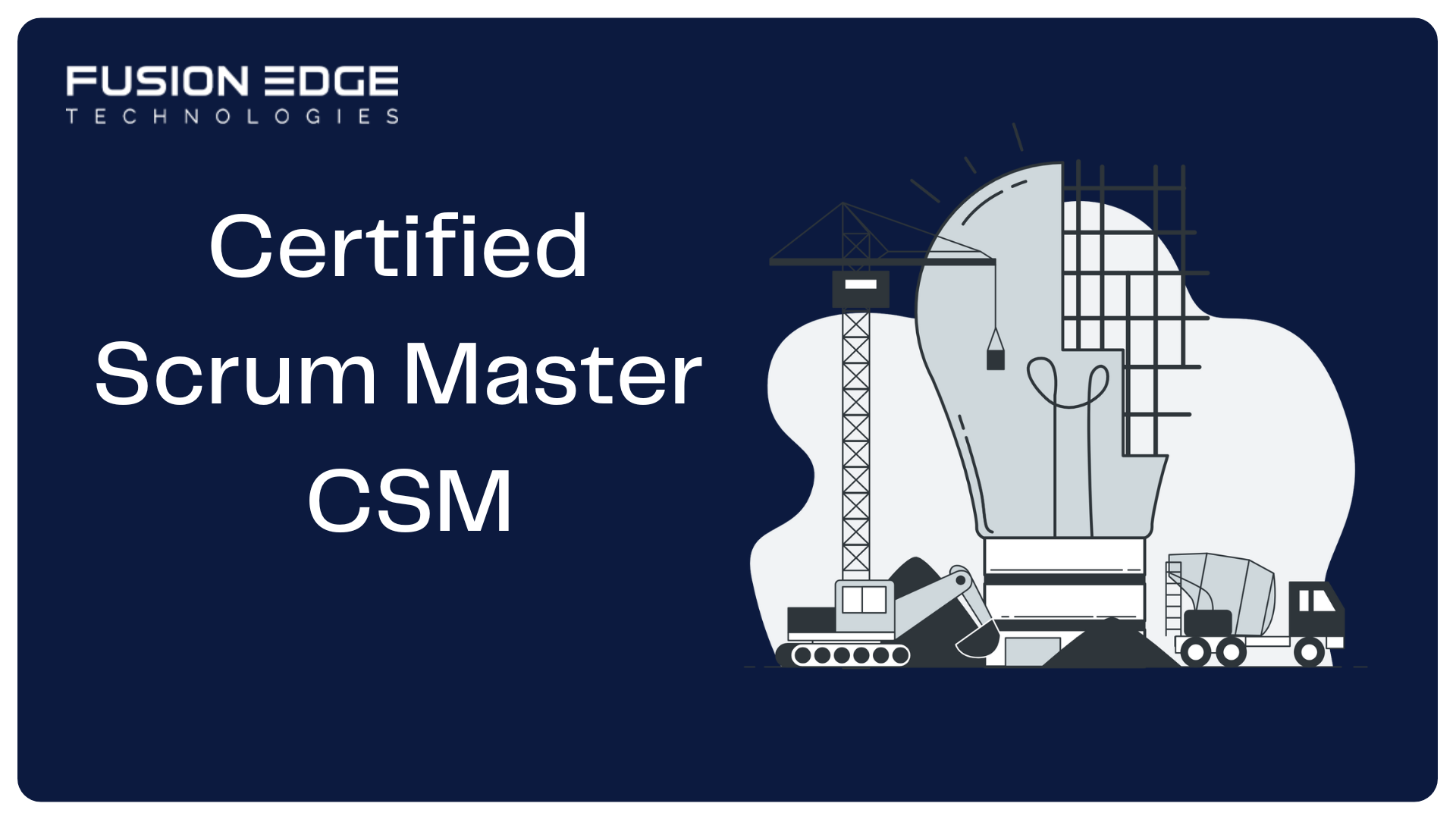Certified Scrum Master (CSM) Certification: A Comprehensive Guide
In today’s fast-paced business world, Agile methodologies have become the cornerstone of successful project management. Among the most sought-after certifications in Agile is the Certified Scrum Master (CSM). This blog will explore what the CSM certification entails, its benefits, how to get certified, and why it is a valuable asset for professionals in various industries.

What is a Certified Scrum Master (CSM)?
The Certified Scrum Master certification is an entry-level credential offered by Scrum Alliance, designed for individuals who want to understand the Scrum framework and play a pivotal role in Agile teams. As a Scrum Master, you’ll facilitate collaboration, eliminate obstacles, and ensure teams adhere to Scrum principles, making you a crucial player in Agile project success.
Why Pursue a CSM Certification?
The demand for certified Scrum Masters has surged as organizations shift toward Agile practices. Here’s why earning a CSM certification is a smart career move:
- Increased Career Opportunities: Organizations across industries value Scrum Masters for their ability to drive productivity and deliver projects effectively.
- Higher Earning Potential: Certified Scrum Masters often earn higher salaries compared to non-certified peers, with average annual salaries exceeding $100,000 in many regions.
- Enhanced Team Collaboration: CSMs foster better communication and teamwork, which are essential for project success.
- Global Recognition: Scrum Alliance is a globally recognized body, making the certification highly credible.
- Skill Validation: Demonstrates your expertise in Scrum principles, Agile methodologies, and team facilitation.
Who Should Get Certified?
The CSM certification is ideal for:
- Project managers transitioning to Agile frameworks.
- Team leaders aiming to enhance productivity.
- Developers, testers, and architects working in Agile teams.
- Professionals seeking a career in project management or Agile roles.
- Entrepreneurs and product managers wanting to implement Agile in startups.
How to Become a Certified Scrum Master (CSM)
Here’s a step-by-step guide to earning your CSM certification:
1. Understand the Basics of Scrum
Before diving into certification, familiarize yourself with the Scrum framework, its roles, events, and artifacts. Books like “Scrum: The Art of Doing Twice the Work in Half the Time” by Jeff Sutherland can be a great starting point.
2. Enroll in a Certified Scrum Master Training Course
Scrum Alliance mandates attending a two-day CSM training course offered by a Certified Scrum Trainer (CST). The course covers:
- Scrum principles and values.
- Roles in Scrum (Scrum Master, Product Owner, Development Team).
- Sprint planning, reviews, and retrospectives.
- Techniques for removing team impediments.
3. Pass the CSM Exam
After completing the course, you’ll take an online exam consisting of 50 multiple-choice questions. To pass, you need a score of at least 74%.
4. Accept the Scrum Alliance License Agreement
Upon passing the exam, accept the license agreement and complete your Scrum Alliance profile to receive your certification.
5. Renew Your Certification
The CSM certification is valid for two years. To renew, you’ll need to earn Scrum Education Units (SEUs) and pay a renewal fee.
Key Topics Covered in the CSM Training
During the CSM training, participants gain a deep understanding of:
- Scrum Framework: Core principles, roles, and processes.
- Agile Manifesto: Understanding Agile values and principles.
- Facilitation Techniques: Leading teams effectively and fostering collaboration.
- Team Dynamics: Managing cross-functional teams for maximum productivity.
- Product Backlog Management: Prioritizing tasks to deliver maximum value.
What Makes a Great Scrum Master?
A Scrum Master’s role extends beyond just facilitating Scrum practices. To excel, a Scrum Master must:
- Be a Servant Leader: Focus on empowering the team and removing obstacles.
- Promote Continuous Improvement: Encourage teams to reflect and improve processes.
- Foster Transparency: Ensure clear communication across all stakeholders.
- Adaptability: Be flexible in addressing challenges and changing requirements.
Benefits of CSM Certification for Professionals
- Career Advancement: Positions you as a valuable asset in Agile environments.
- Networking Opportunities: Join a global community of Scrum professionals through Scrum Alliance.
- Versatility: Applicable in various industries, including IT, healthcare, finance, and marketing.
- Improved Team Dynamics: Learn to manage conflicts, foster collaboration, and boost team morale.
- Increased Productivity: Master techniques to eliminate bottlenecks and enhance workflow efficiency.
Cost of CSM Certification
The cost of obtaining a CSM certification typically ranges between $500 to $2,000, depending on the training provider and location. This includes the training course fee, exam fee, and Scrum Alliance membership.
Top Training Providers for CSM Certification
Here are some of the best organizations offering Certified Scrum Master training:
- Scrum Alliance: The official certifying body for CSM.
- KnowledgeHut: Offers globally recognized CSM training.
- Simplilearn: Renowned for its high-quality Agile training programs.
- Agile For All: Focuses on practical, hands-on learning.
Tips for Passing the CSM Exam
- Review Scrum Guide: The official Scrum Guide is the best resource for understanding Scrum principles.
- Participate in Training: Actively engage in training sessions and ask questions to clarify doubts.
- Practice Mock Tests: Familiarize yourself with the exam pattern using online practice tests.
- Focus on Fundamentals: Understand Scrum roles, events, and artifacts thoroughly.
CSM vs. Other Agile Certifications
While the CSM certification is highly recognized, there are other Agile certifications worth considering:
- Professional Scrum Master (PSM): Offered by Scrum.org, it’s considered more challenging than CSM.
- SAFe Agilist Certification: Focuses on scaling Agile across large organizations.
- Certified Agile Leadership (CAL): Ideal for managers and executives.

